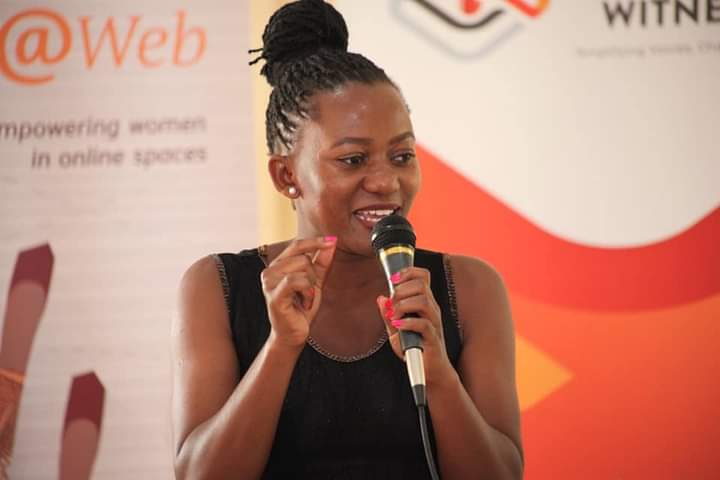When Naggita “Maya” Mayimuna was growing up in Mukono Town—a municipality in the central region of Uganda with a population of over 160,000 people—she recognized her neighborhood was toxic. Men and women often engaged in violent domestic disputes, where men often abused women.
“It was so sad that I could not do anything at that point in time, when I was young,” Mayimuna said.
After she finished high school, she began a guidance and counseling program, which led her to intern at her district’s probation office. There, she met with about 15 women every day, who would detail issues ranging from gender-based violence, sexual violence, and a lack of financial and economic freedom to escape toxic situations.
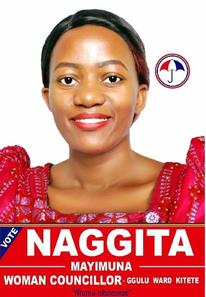
“I remember I used to cry so much,” Mayimuna recalled. “I used to cry, but not show so much. But then after that, I would just go somewhere and cry—like really cry. It really cut so deep for me. And I was like, no. I really need to do something about this.”
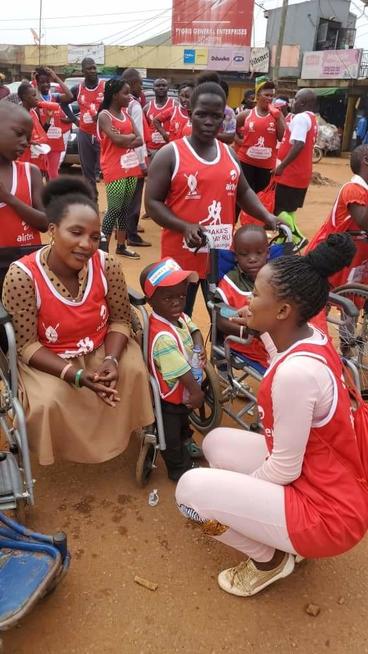
That inspired her to found her nonprofit organization Women and Youth Platform for Action, a community-based organization that advocates for women’s rights and provides sex education and education around issues including gender-based violence, sexual violence, and more.
The organization also works to improve the socioeconomic status of women by providing them with skills and career guidance. Mayimuna recalls how career guidance would have helped her when choosing between computer science and her true passion, community development.Through her nonprofit organization, she encourages other women to pursue their passions by teaching them the skills and resources necessary to make their dreams a reality.
“Time is money,” she emphasized. “We don’t just have to survive; we have to thrive.”
During her work with her nonprofit advocacy organization, she quickly found a gap between women experiencing crisis and the local leaders who represented these women. When women would convey their struggles to their elected officials, they would be told things such as “Please be strong,” “This has happened for many years,” or “Be more obedient to your husbands so you avoid this.”
Feeling frustrated that her local leaders weren’t taking women’s issues seriously, Mayimuna decided to run for office, and—in 2021—was elected as a councilwoman for her local municipality.
“We remind women of the power that they have to speak out,” she said. “Remind them of the power that they have to end violence in our communities. I was discouraged from using the word ‘empower’ because these people have the power already, but you just have to keep reminding them.”
As a young, female politician, she said the road to office was wrought with challenges. “The sexual harrassment on the campaign trail is real,” she said. “It’s real that I had to get a body guard. … I could not do it without anyone at my side to protect me.”
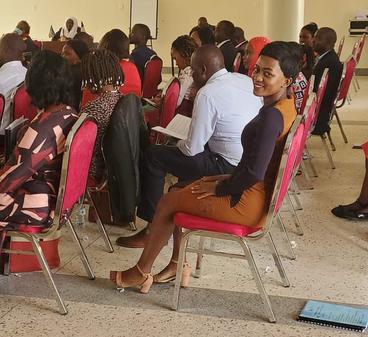
Her constituents, still very traditional, often question her qualifications to be in a seat of power. People often ask if she’s married, if she has children. When they learn she is a young, unmarried woman with no children, people ask her, “How can we trust you with this responsibility?”
“It’s very hard,” she said. “You have to be very resilient.”
In her role as a councilwoman, she considers women’s perspectives. Does this law consider women? Is it safe for women? She also advocates for marginalized groups which still face stigmas in Uganda. But there are rewards to her work, she said.
“I really enjoy the fact that I work with people. My work feels like I’m not working. Sometimes I ask myself, ‘Am I really working?’ It’s just about interacting, having those conversations. And when you interact with people, you learn a lot of things.”
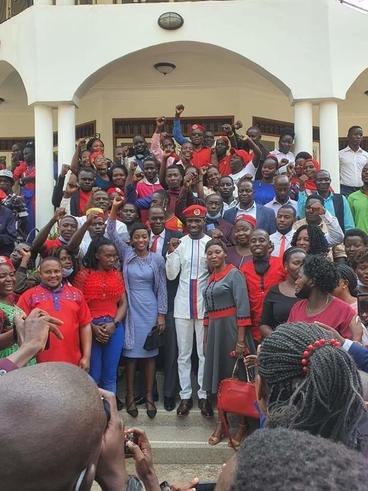
In the future, Mayimuna plans to run for the Ugandan parliament, and to expand her nonprofit organization to the wider East African region.
She hopes to fund practical necessities, such as sewing machines, to teach women trade skills to be entrepreneurial and independent. She also plans to launch a mentorship program for young women in politics, using her connections gained during the Mandela Washington Fellowship.
“Women don’t want to join politics,” she said. “We need to change minds here. Show them how it’s very important for them to become a part of the decision-making process in their countries.”
This year, 24 of Africa’s brightest emerging leaders will participate in an academic and leadership institute at the University of Minnesota through the Mandela Washington Fellowship, part of the Young African Leaders Initiative, which is sponsored by the U.S. Department of State and hosted by the College of Education and Human Development (in the Department of Organizational Leadership, Policy, and Development) in partnership with the Humphrey School of Public Affairs. For more information about the Mandela Washington Fellowship, please visit the Fellowship’s website at www.mandelawashingtonfellowship.org.
